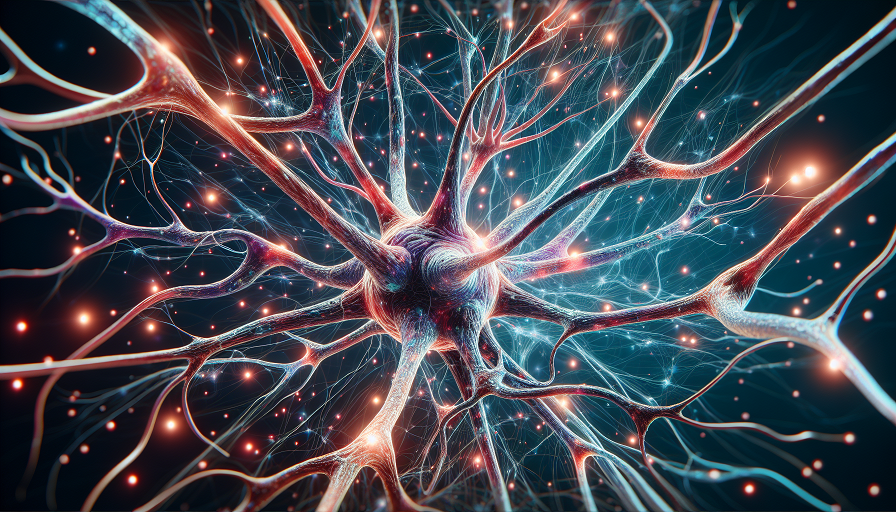
Imagine sitting down to work and suddenly, time just flies by without you noticing. Your focus is sharp, creativity is flowing like a river, and tasks are getting completed one after the other almost effortlessly. This magical experience is known as the flow state, a mental zone where peak work and optimal performance happen. But what exactly is this mystical state of mind, and how can we achieve it? Let’s delve deeper into the world of flow, explore its benefits, and learn ways to tap into it intentionally.
Contents
What is Flow State?
Flow state, often described as being “in the zone,” is a mental state where someone is fully immersed in a task with a feeling of energized focus and full involvement. The concept of flow was first identified by psychologist Mihaly Csikszentmihalyi, who found that people report their greatest happiness when they are in a state of flow. This is when they are so absorbed that all else fades away, including time.
During flow, your brain operates at an optimal level. This is partly because flow minimizes distractions, allowing you to concentrate intensely on the task at hand. It’s not just about working harder; it’s about working smarter. This state can happen in various activities, whether you’re writing a novel, playing a sport, or painting. Flow is the sweet spot between your skill level and the challenge you’re facing.
The Benefits of Reaching Flow State
The benefits of flow are extensive and impactful. When you’re in this state, your productivity and performance can soar. You also tend to learn better, as you’re more engaged and the information or skills are processed more effectively. Additionally, flow can foster creativity, as it allows for unhindered exploration of ideas and solutions.
Another significant benefit is the sense of wellbeing and fulfillment that comes with achieving flow. People often report a feeling of satisfaction and a kind of peaceful happiness. This is why many successful people strive to harness flow regularly in their personal and professional lives. Essentially, tapping into flow can help improve both your mental health and career prospects.
Factors That Influence Flow
Several factors can influence your ability to enter a flow state. One of these is having a clear set of goals. When you know exactly what you’re working towards, it’s easier to stay motivated and focused. Immediate feedback is another essential element because it helps you make quick corrections and continue improving without losing momentum.
The task itself should be appropriately challenging. Tasks that are too easy may bore you, while tasks that are too difficult could lead to frustration. Finding a balance is crucial. External factors such as your environment can also play a role. Minimizing distractions and creating a comfortable workspace can help you enter flow more easily.
How to Achieve Flow State
Achieving flow isn’t always easy, but with practice, it can become more intuitive. Start by choosing a task that matters to you and aligns with your skills. It’s important that your task has a purpose or engages you personally. Then, eliminate as many distractions as possible, whether it’s silencing your phone or closing unnecessary tabs on your computer.
Craft your environment to enhance concentration. Whether it means playing background music or working in silence, design your space to best suit your preferred mode of concentration. Set a designated amount of time to focus on your task and resist the urge to multitask, as splitting your attention can keep you from achieving flow. With persistence, these strategies can help you slip into the flow state more naturally.
Nootropics and Brain Supplements
Nootropics, often referred to as smart drugs or cognitive enhancers, are substances that can potentially improve cognitive function, particularly executive functions like memory, creativity, or motivation. While nootropics won’t automatically put you in flow, they might enhance your ability to focus and stay mentally engaged, which are important components when working toward achieving flow.
Brain supplements, often consisting of natural ingredients like vitamins, minerals, and herbs, can also play a supportive role. Ingredients such as omega-3 fatty acids, caffeine in moderate amounts, and ginkgo biloba have been linked to improved brain function. If you decide to try nootropics or supplements, it’s essential to conduct thorough research and possibly consult with a healthcare professional to ensure they align with your physical health needs.
Activities That Foster Flow
While many activities can lead to flow, certain ones are more likely to bring about this enhanced state. Engaging in sports, playing musical instruments, writing, or even solving puzzles are common examples. These activities require focus, offer clear goals, and provide immediate feedback, all prime conditions for flow.
Following your natural interests can also help in fostering flow. If you’re passionate about cooking or coding, these can become avenues to reach flow with practice and intention. The key is to engage regularly and attentively, allowing yourself the chance to become absorbed fully in the activity.
Technological Tools to Aid Flow
In today’s digital age, there are various technological tools designed to help individuals achieve a flow state. Apps that block distracting websites, time management tools, and focus-enhancing music playlists are just a few examples. These tools can create an environment conducive to focus and concentration.
You can also leverage productivity software to stay organized and set clear objectives. Programs that allow you to set goals, track progress, and visualize results can keep you engaged and minimize disruptors to your workflow. By combining technology with intentional task management, you can pave the way to easier access to flow more routinely.
Unlocking the flow state and making it a regular occurrence can transform how you approach work and creativity. By understanding what flow is and how to cultivate the right conditions, you can harness this powerful mental zone to enhance productivity, fulfillment, and overall brain health.

